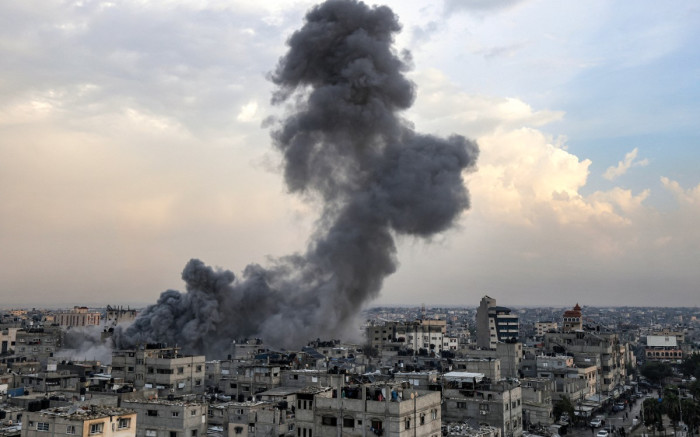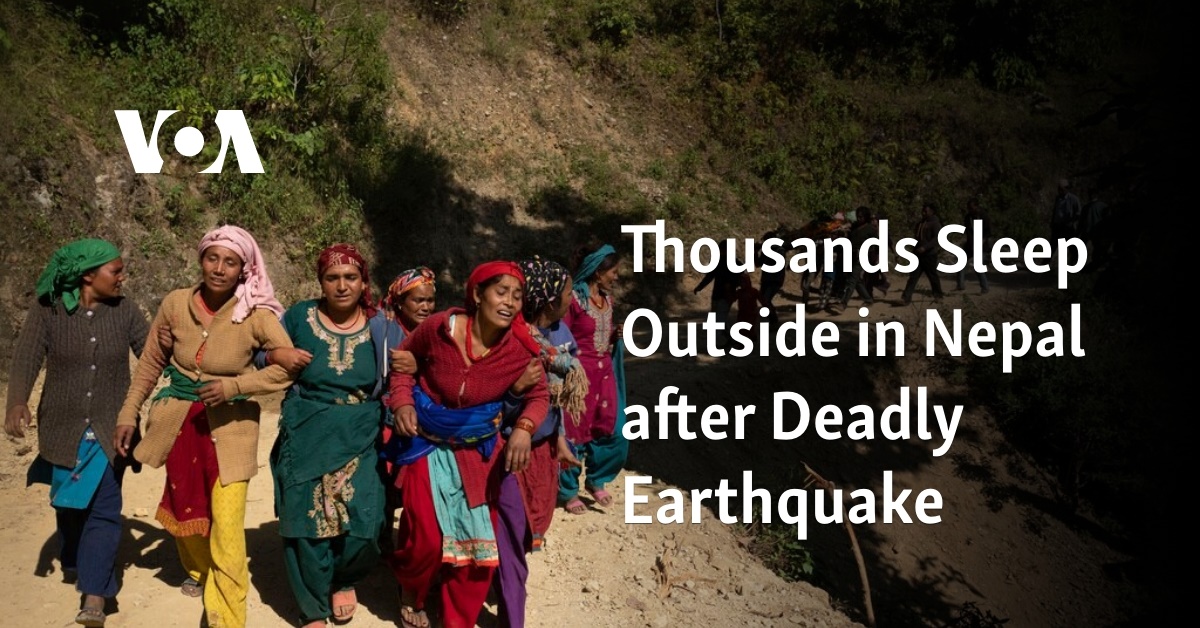
The United Nations Security Council was due to vote on Monday on a new resolution calling for an “urgent and sustained cessation of hostilities” in Gaza.
A cloud of smoke erupts during the Israeli bombardment in Rafah in the southern Gaza Strip on December 12, 2023, amid ongoing fighting between Israel and the militant group Hamas. Image: AFP
JERUSALEM – Israel faced increasing international pressure Monday over rising civilian deaths and destruction of hospitals in Gaza as it continued its war against Hamas militants in the besieged Palestinian territories.
The United Nations Security Council was due to vote on Monday on a new resolution calling for an “urgent and sustained cessation of hostilities” in Gaza.
The deadliest Gaza war ever began with unprecedented attacks by Hamas on October 7, when the group killed 1,139 people, mostly civilians, and kidnapped about 250, according to updated Israeli figures.
More than 18,800 people, mostly women and children, have been killed in Israel’s campaign in Gaza, according to the Health Ministry in Hamas-controlled territory. Dozens of people were killed in Israeli attacks on Sunday, it said.
After months of heavy bombardment and fighting, most of Gaza’s population has also been displaced and people are struggling with shortages of fuel, food, water and medicine.
According to the United Nations, less than a third of Gaza’s hospitals are partially functioning. The World Health Organization on Sunday condemned the impact of Israeli operations on two hospitals in the territory’s north.
WHO chief Tedros Adhanom Ghebreyesus said the agency was “appalled by the actual destruction” of Kamal Adwan hospital, where Israeli forces carried out a multi-day operation against Hamas.
In front of the hospital courtyard, where traces of tanks and bulldozers could be seen, Abu Mohammed, looking for his son, stood crying.
“I don’t know how to find him,” he said, pointing to the rubble.
The Israeli army withdrew from the hospital on Sunday after a multi-day operation, claiming it was being used by Hamas as a command and control center.
Israel said it had negotiated safe passage for the evacuation of most people before entering the hospital.
The WHO also said Israeli bombings had turned Al-Shifa Hospital’s emergency room into a “bloodbath.”
The Hamas-run Health Ministry said an Israeli strike hit Nasser Hospital in Khan Yunis, the capital of the southern Gaza Strip, on Sunday, killing one person and wounding seven others.
And the ministry said Israeli forces stormed Al-Awda Hospital in northern Gaza on Sunday and detained medical staff after several days of siege and bombardment.
Israeli Prime Minister Benjamin Netanyahu vowed again on Sunday to “fight to the end” and promised to achieve the goals of eliminating Hamas, releasing all hostages and ensuring that Gaza never again becomes a “center of terrorism.” .
The Israeli army says it has uncovered the largest Hamas tunnel to date near the northern border crossing with the Gaza Strip in the Israeli town of Erez.
An AFP photographer reported that the tunnel was large enough for use by small vehicles.
Israel said the tunnel cost millions of dollars and took years to build, including rails, electricity, drainage and a communications network.
The Israeli army said five soldiers were killed on Sunday, bringing the death toll in the Gaza Strip to 126 since ground operations began in late October.
Call for a ceasefire
The Israeli government is coming under increasing pressure from the international community to stop fighting and do more to protect civilians.
The United Nations estimates that 1.9 million people in Gaza – about 80% – have been displaced by the war.
“I wouldn’t be surprised if people died of hunger or a combination of hunger, disease and weak immunity,” said Philippe Lazzarini, head of the U.N. agency for Palestinian refugees.
There have also been repeated communications outages in the Gaza Strip, but on Sunday Gaza’s main telecommunications company said mobile and internet service had been gradually restored.
French Foreign Minister Catherine Colonna was in Israel on Sunday and called for an “immediate and permanent” ceasefire.
France separately condemned an Israeli bombing that killed one of its foreign ministry officials in Gaza.
Qatar, which helped broker a ceasefire last month in which 80 Israeli hostages were exchanged for 240 detained Palestinians, said there were “ongoing diplomatic efforts to renew the humanitarian pause.”
But Hamas said in the Telegram that it was “opposed to any negotiations on the exchange of prisoners until the aggression against our people completely ceases.”
US Defense Secretary Lloyd Austin was in Kuwait on Monday as part of a regional tour that will also include stops in Israel and Qatar, where a ceasefire agreement was previously negotiated.
“DAILY HUMILIATION”
Israel is also facing calls from the hostages’ families to either slow down, suspend or end the military operation.
Israel says 129 hostages are still in Gaza and relatives gathered again in Tel Aviv to demand an agreement to repatriate the hostages after the army admitted accidentally killing three of the prisoners in Gaza.
One hostage who has already been released, German-Israeli Raz Ben-Ami, 57, spoke of the “daily humiliation, mental and physical” she endured, including one meal a day and no access to proper toilets.
The conflict in Gaza has also led to a spiral of violence in the Israeli-occupied West Bank.
Israeli forces killed five Palestinians in a West Bank refugee camp on Sunday morning, according to the Palestinian Health Ministry.
The Israeli army said the airstrikes targeted militants who endangered soldiers.
Health officials say more than 290 Palestinians have been killed by Israeli forces or settlers in the West Bank since the war began.
SYRIA STRIKES
Fears continued to grow that the conflict in Gaza could spread across the entire region.
According to the Syrian Defense Ministry, Israel carried out airstrikes near Damascus on Sunday, injuring two Syrian soldiers.
Israeli forces and Iranian-backed Hezbollah fighters regularly engage in firefights on Israel’s northern border with Lebanon.
Seeking to pressure Israel, Yemen’s Iran-backed Houthi rebels have launched attacks on passing ships in the vital Red Sea shipping zone, forcing major companies to reroute ships.





Recent Comments